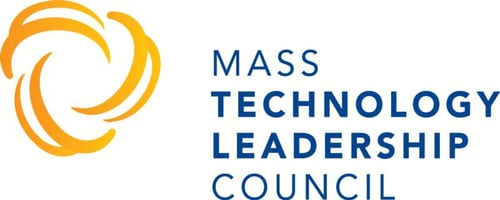
Yesterday, I attended a conference put on by MassTLC called the Innovation unConference. It was probably the most interesting conference I have ever attended for a few reasons. First, the unConference format was very interesting. The day started with a brief overview of how the conference would work and then 5 mins of full attendee self-introductions. Then masses of people started announcing topics that they would present on, claiming times and rooms by placing cards on a big chart on the wall. If topic conflicts occurred, topics were moved or discarded. Soon the wall was full. There were 4 timeslots for sessions, 1 lunchtime networking session, a group exercise, and a post-event discussion.
The attendees were a mix of established entrepreneurs, new startups, Angel and VC investors, and other professionals. There were endless opportunities to learn from everyone around you about some aspect of being an entrepreneur. Access to all this knowledge in one spot is incredible uncommon.
The first session I attended was entitled - Mistakes Startups Make. They were:
- Choosing the wrong business type. The experts said that the most common correct type would be c-corp, perhaps starting out as s-corp, because it is an easy vehicle for future VC funding. LLC's may seem to be cheaper in the start, but there are tax implications in switching to a C-corp later on. There is also some standardization of operating agreements and other documents released by Paul Graham's Y Combinator.
- Having an Idea versus a company. There are lots of great ideas, but not all of them make a great company. Need to do the market research and think about why someone would want to put money into the company and how they would get it back. Need a business plan. Need to understand the sales channel.
- Improper use of VC. The best time for getting investors is when you don't need them. Startups need to research VC and Angel investors before pitching them. They will sit on the board and have a direct impact on the company. Each investor offers expertise as well as cash, so it is important to find the right match. Some recommended taking the biggest amount of funding in the first round as possible, because that is when you will have to give up the biggest share of the company. Also, picking the right investor is important, as big name investors can help attract big name talent.
- Doing a startup first. It was recommended to work for someone else first to gain that knowledge and learn what works and doesn't. Use this also as an opportunity to find people you can learn from and later on have as advisors or board members.
- Not knowing why they are there. Understand your reasons for being in business. Know your strengths. Successful startups have at least 1 business guy, marketer, and technologist.
- Not having advisors. Get others who have been successful to help. Often this will cost 1% equity, but will make a huge difference in the success of the company. Advisors and boards also provide accountability. Founder time is scarce, and advisors can help focus their efforts on the core business.
The next session was called "How Not to Get Free Publicity" and was put on by Scott Kirsner. Key points were basically doing the opposite of the slides. Here is what you should do:
- If a competitor gets written up, don't whine to the reporter about it. Instead, post a relevant comment describing your company in the articles online comment section.
- On your website, make it easy for press to contact you. Have the name of a real person, along with a phone number and email address. Don't hide behind a form.
- Respond quickly to questions. This can make a huge difference in whether your information makes it into the article.
- Show your location. This helps get local PR. If you have multiple locations, show them all.
- Have full bios. Give real details, make them interesting, and show prior work. Sometimes, reporters are looking for experiences in prior companies for stories.
- Be read in your responses. Don't give canned answers. You can be combatitive if you can get away with it, like Scott McNeely, but this doesn't work most of the time.
- Talk off the record. If you are in a quiet period, you don't have to divulge all the details, but you can talk about the industry and other background information.
- Have interesting headshots. Use non-traditional photos in high-res. These are much more likely to be used.
- Contact the press directly. You don't always need your own PR firm to get to the press.
- Blog. Have a lot of visible content to draw from and link to.
- Give the big scoops to the big names. Don't waste it on a little place when a large outlet could do more for you.
- Press releases should have full contact info so that people can follow up with you.
There is a great set of interviews from the event by Lois Paul & Partners and a flickr set by thopcraft.
October 03, 2008

